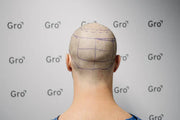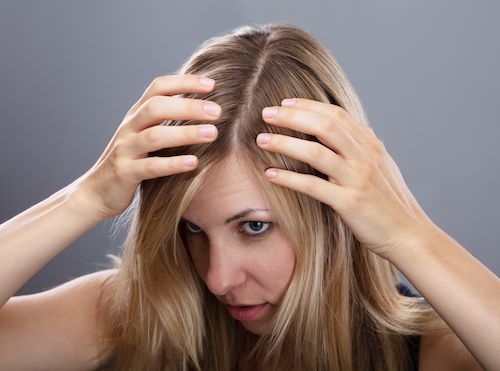When we hear the words “hair loss” we usually associate it with men, however millions of women also suffer from hair loss. Only 45% of females at 80 years of age have a full head of hair.
The good news is that for women, hair loss is usually treatable and even reversible as the most common causes can be temporary. Throughout life, hair loss for women can be triggered by certain events, for example pregnancy, menopause or stress, following which hair growth usually returns to normal. However, hair loss can also occur due to genetics and ageing.
In this article we discuss the top 6 causes for female hair loss and the various treatment options.
If you suffer from hair loss, answer these 3 questions to discover the best treatment option for you.
Top Causes For Female Hair Loss
For women, losing your hair can have a profound impact on confidence and self esteem and can be very worrying and stressful which can further impact hair loss. The most common cause for hair loss in women is hormone related. The 6 most common causes for hair loss in women are as follows:
- Crash dieting or a poor diet where the body is lacking essential nutrients supporting optimal hair growth may result in hair loss. A diet lacking sufficient protein, the main component of hair, can inhibit follicle growth. When there is extreme dietary imbalance or weight loss, anorexia or Bulimia, this can cause hormonal damage.
- Smoking reduces the amount of oxygen and increases the level of carbon monoxide in the blood supply to the scalp, causing damage to the hair follicle. Its effects on restricting blood suppy are well documented, this in turn accelerates premature aging of the skin and hair loss.
- Genetics is the most common reason for hair loss and baldness. For about 90% of men and women who experience hair loss, the cause is related to changing hormone levels, a trait that is inherited from your parents. This is the leading cause of long term thinning of the hair.
- Diseases, autoimmune disorders or infections causing fever, anaemia or damage to the skin (eczema, skin infections, trauma) can also contribute to hair loss. Alopecia Areata is an autoimmune disorder, where the body attacks its own hair follicle.
- Stress causes a range of health problems, but often one of the first symptoms of stress is hair loss. Unfortunately, losing your hair can often be a cause of stress and can make the problem worse.
- Hormonal imbalances can trigger temporary and even permanent hair loss. Thyroid hormone imbalances and changes in estrogen and progesterone during pregnancy and menopause can cause hair loss and in women.
What Can I Do If My Hair Is Falling Out?
Improving your general health is a good start in reducing hair loss. If you can reduce stress, improve your diet and stop smoking, you may be able to reverse your hair loss without further treatment, or improve the success of any treatment you may need.
A correct diagnosis is really important to determine if you would benefit from one of the many treatment options available. Over two-thirds of men and women suffering hair loss get some form of treatment without a proper medical diagnosis and then spend a fortune on lotions and shampoos that don’t work.
Gro treatment options are personalised to individual requirements, based on sound medical knowledge and experience. If you are worried about losing your hair, or have been thinking about getting treatment for hair loss, come in for a consultation. We can give you an accurate diagnosis and answer any questions you might have about what treatment options are right for you.
If you have been considering treatment options for hair loss, you can click on one of the buttons below or see more information on the hair implant Sydney or hair implant Brisbane and hair implant Melbourne and hair implant Gold Coast pages. Alternatively, you can call us on 1300 787 563 so we can answer any questions you have.













